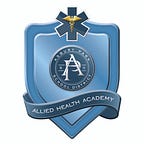Relationship between Public Healthcare and Law
I am an Allied Health instructor at Asbury Park High School’s Career and Technical Education Program, Allied Health Academy. Recently, I have been involved in the process of integrating the programs in our Allied Health Academy with another program; the Asbury Park High School: Law & Public Safety Academy APSD. This integration process was inspired by the acknowledgment of the fact that legal practices inclusive of first responders such as police officers and emergency medical technicians are needed to resolve healthcare emergencies as well. This realistic and whole approach recognizing the branch of legal studies that deals entirely with health, i.e. Health Law, and law as it relates to public safety, provides an educational framework bringing in real world settings to educational experiences. During this process of integration, I often found myself wondering how my students would adjust to this re-organization of their curriculum. I would hear the voices of my students in my head crying out, “What has law got to do with my coursework?” “What do legal studies have to do with medicine?” “We already have enough medical terminologies and scientific principles of nutrition to study. Now on top of all that we also have to memorize legal terms!”
Recognizing the realistic concerns my students were going to voice, I opted to offer a small introduction to the coursework next semester. The overview of the general idea behind the course integration explained why it was in our healthcare students’ best interest to integrate our program with those of the LPS Academy in a meaningful way, as a throughline to their educational foundation in healthcare.
Like all other sectors of a country’s economy, there are a set of rules and regulations that govern the healthcare industry. The essence of these laws is primarily to ensure that people’s rights are protected when making decisions about their healthcare. Secondly, it dictates the responsibilities of healthcare professionals. Moreover, competent healthcare personnel (like you aspire to be) ought to live up to certain ethical standards. I believe that one of the ways of learning which best practices to abide by in the medical profession is through the study of Health & Public Service Laws.
Drawing from my experience as a school nurse (before venturing into the teaching profession), I firmly believe that having some legal background in matters of healthcare administration can go a long way in ensuring proper service delivery and, saving lives. This is a direct result of my prior experiences in healthcare wherein I came across several health-related situations that were only resolved after the law had to applied appropriately. Some of these situations included cases of parents who did not want their children to be vaccinated but still wanted them enrolled in public school. A few cases were of parents who pressed charges against the school for unintentional harm caused to their children through accidents. As a medical, healthcare practitioner or first responder, my students are required to know and be prepared for what will undoubtedly occur when health emergencies can be best resolved through a legal processes.
Through this integration of healthcare and legal studies programs, my students will also expand their knowledge about their chosen profession. For instance, they will get to learn of the ways that law has contributed to various achievements in the public health industry in areas such as vaccination, the control of infectious diseases, and the decline in deaths from coronary heart disease and stroke. It is because of enacted laws that we have safer and healthier foods, healthier mothers and babies, family planning, safe drinking water, and have recognized tobacco use as a health hazard. By exposing students to health law, the integration of these programs will undoubtedly improve their awareness of current public health issues such as the debates about either adopting herd mentality or individual immunity, the exposure to environmental tobacco smoke, and unintentional injuries of children. Our students can attain a better understanding of some of the key legal issues in healthcare including medical negligence, informed consent, and confidentiality (Dam, 2019).
The importance of understanding the relationship between healthcare and law has become even greater over the last few decades. This is following the many developments in medicine that have greatly transformed the field of medicine; enabling faster and more accurate detection and diagnosis of diseases, as well as attention to emergency medical care saving countless of lives in the process. These new forms of treatment and more efficient medical technologies have, however, brought about radical changes in the medical field while also presenting new legal and ethical challenges to healthcare professionals. The need for healthcare and medical students to begin understanding the legal framework underscores the expectations to tackle health emergencies and other legal issues arising their respective work-stations and areas of expertise. This is precisely what the throughlines integrating our Allied Health Academy with the Law and Public Safety Academy programs hopes to achieve.
Reference
Dam, D. (2019). An overview of the legal and ethical issues in healthcare. Retrieved August 21, 2020, from https://www.st-patricks.ac.uk/blog/posts/2019/october/an-overview-of-the-legal-and-ethical-issues-in-healthcare/
